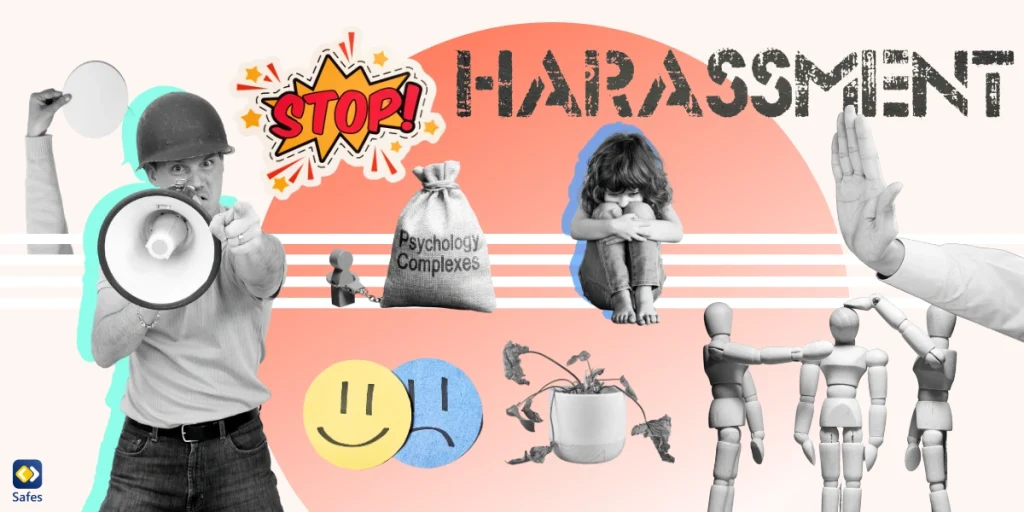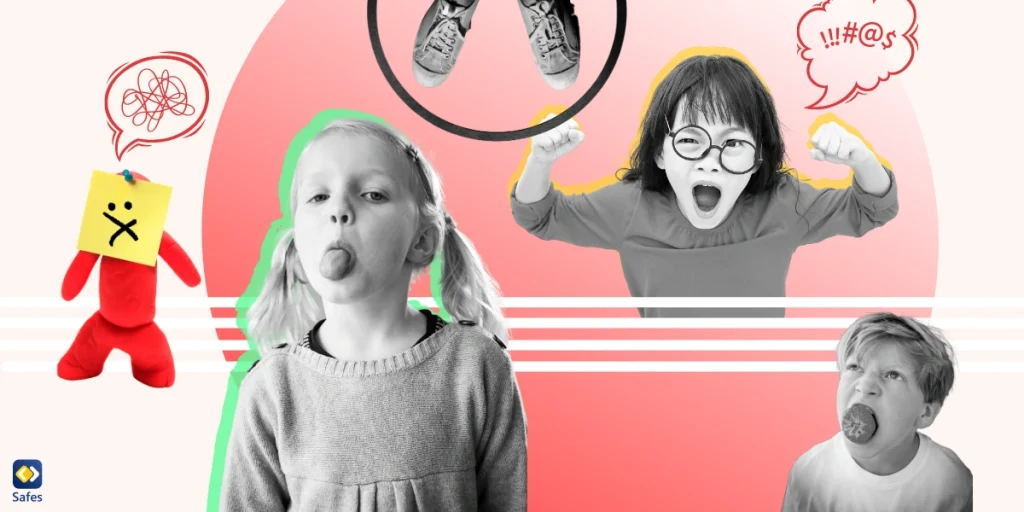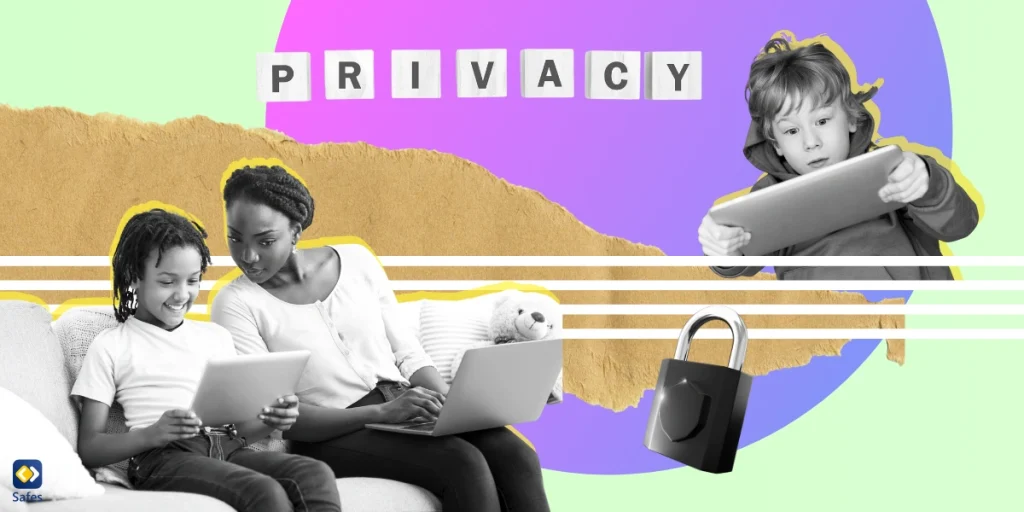From constant yelling and criticizing to belittling and intimidating a child, these are the signs of a verbally abusive parent. While some parents believe this behavior is the right parenting style to bring up obedient children, they fail to notice the devastating short-term and long-term emotional and psychological harm they’re inflicting on their children. Verbally abused children often suffer from a lack of self-esteem and may engage in self-harm.
Download and Start Your Free Trial of the Safes Parental Control App
We decided to write a blog about the meaning of verbal abuse towards children, its symptoms and effects on children, and how to recognize if you have some of the traits of a verbally abusive parent. Whether you’re a parent worried that your behavior might be harmful to your child, an educator who works with children, or someone worried about children in their life, we believe this blog has something to teach you.
What Is Verbal Abuse?
Verbal abuse is a form of emotional abuse. It doesn’t leave any physical marks on the victim because the abuser uses words to harm, belittle, or control the victim. Verbal abuse can happen in different settings, such as school, work, or home. When it happens between parent and child, we call it verbal abuse against children. Verbal abuse from parents is a painful experience for a child that can have long-lasting effects on a child’s emotional well-being and mental health. In the following, we’ll tell you more about what these effects are.
The Emotional Impact of Verbal Abuse on Children
Children subjected to verbal abuse often suffer from many emotional and psychological issues. The constant bombardment with negative words and demeaning comments can wear away their self-esteem and self-worth. They may begin to believe the hurtful things said about them and internalize the negativity, leading to feeling worthless and shameful.
Verbal abuse can also, like sexual abuse, cause anxiety and depression in children. Children may constantly feel on edge, anticipating the next outburst or insult. This stress can have a devastating impact on their mental health, making them more susceptible to developing anxiety disorders or depressive symptoms. Find more information about this issue in this research published in Bipolar Disorders.
The harmful effects of verbal abuse on children don’t stop here. Children who experience verbal abuse may struggle with trust and forming healthy relationships. The negative messages they receive from their parents can distort their perception of themselves and others. They may struggle to believe in the goodness of people, leading to difficulty forming meaningful connections later in life. This leads us to the long-term effects of emotional abuse.
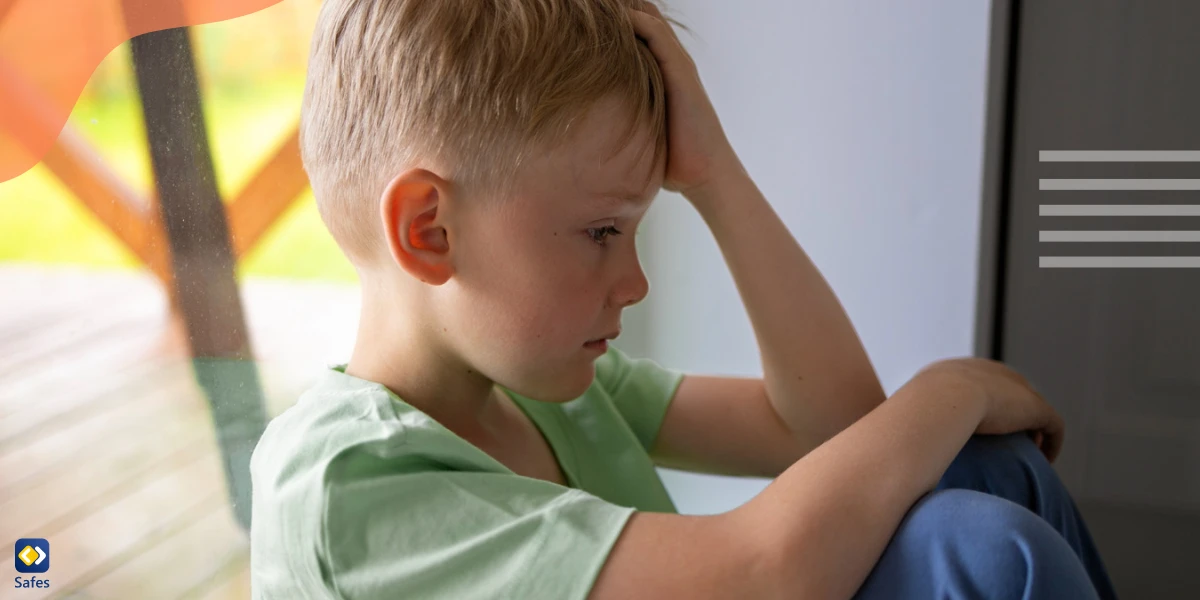
Long-Term Effects of Emotional Abuse
Children who experience verbal abuse from parents are likelier to have difficulties in adulthood. They may struggle with self-confidence, have problems asserting themselves, and be more prone to self-destructive behaviors like substance abuse. Lani Thomason explains this in his research Childhood Verbal Abuse and its Psychological Effects on Adults.
Verbal abuse can also contribute to developing mental health disorders in adulthood. The constant exposure to negative and demeaning language can shape how a person thinks about themselves, leading to distorted self-perception and negative self-talk. This internalization of the abuse can lead to depression, anxiety, and even personality disorders.
How to Recognize Verbal Abuse in Children?
It can be tricky to stop signs of verbal abuse in a child because it often happens behind closed doors and leaves no visible scars. But some telltale signs help understand a child is experiencing verbal abuse from their parents:
Withdrawal and isolation: Children being verbally abused may withdraw from social activities and isolate themselves from friends and family.
Low self-esteem: Constant criticism and demeaning comments can cause a child low self-esteem and a negative self-image.
Anxiety and depression: Verbal abuse can lead to anxiety and depression in children, showing itself in behavior, sleep patterns, and mood changes.
How to Tell if You’re a Verbally Abusive Parent?
If you’re worried about whether you may be a verbally abusive parent and want to solve the problem, it shows that you care about your child’s well-being and are willing to make positive changes. Here are some signs to help you determine if you have verbally abusive behavior toward your child:
Signs of a verbally abusive parent:
- Yelling or screaming at your child and using derogatory or demeaning language often.
- Constantly criticizing or belittling your child, making them feel worthless or inadequate.
- Name-calling or using insulting language toward your child.
- Using threats or intimidation to control your child’s behavior.
- Ignoring your child’s emotional needs or dismissing their feelings.
- Using too much sarcasm or mocking your child.
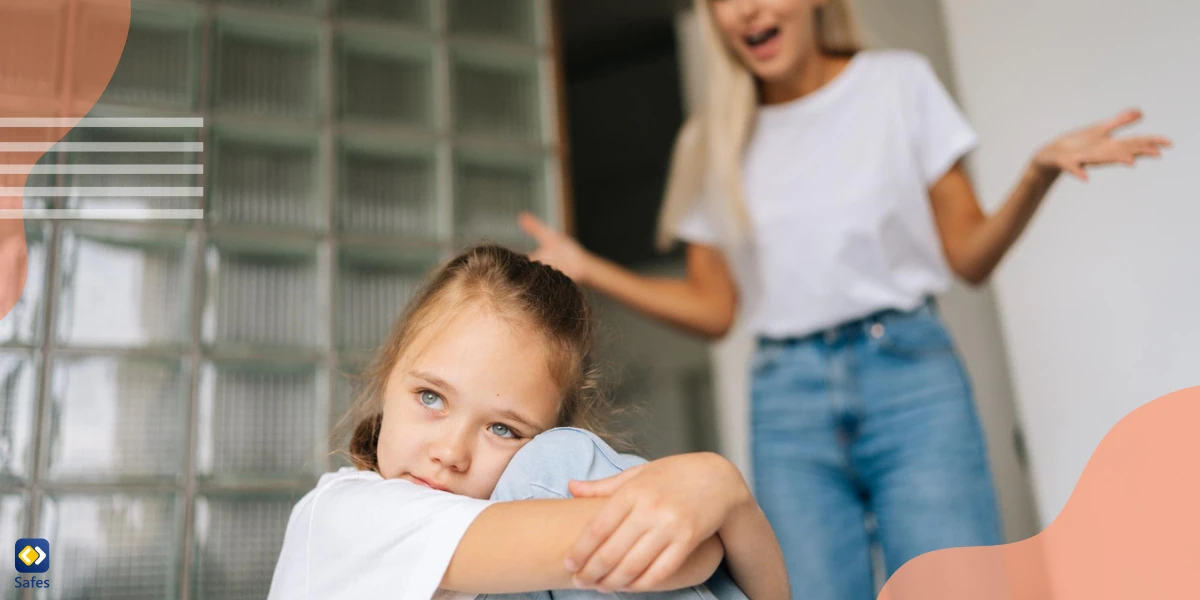
How to Address Verbal Abuse?
If you notice any of the signs we’ve just mentioned in your speaking with your child, you’re possibly a verbally abusive parent. Take these steps to change your behavior and mitigate the harm you’ve done to your child:
Take responsibility for your actions: Think about your behavior and accept that you may have been verbally abusive. Then, try to remove abusive language from your speaking.
Listen and validate: Create a safe space for the child to express their feelings and validate their experiences. Let them know that what they are going through is not their fault and that they won’t see the same behavior from you again.
Seek professional help: If the situation is complicated or you’re not sure how to handle it, contact a therapist or counselor specializing in parenting or family dynamics. They can provide guidance and support tailored to your situation.
The Role of Parental Control Apps Like Safes
Parental control apps like Safes can play a crucial role in protecting children from online harm and supporting their emotional well-being. These apps allow you to monitor and control your child’s online activities, ensuring they are not exposed to harmful content or engaging in risky behaviors without having to resort to yelling, screaming, and other forms of verbal abuse.
Safes offers features such as content filtering, screen time limits, and location tracking. By setting restrictions on the type of content your child can access, you can create a safe online environment that promotes positive and healthy online experiences. Moreover, by setting screen time limits, you can ensure that your child has a balanced lifestyle and are not excessively dependent on digital devices.
In addition to protecting children from online harm, Safes also provides an opportunity for open communication between parents and children. By discussing the reasons behind the restrictions and involving children in the decision-making process, you can foster trust and understanding helping to create a supportive and nurturing environment that promotes emotional well-being. Start fostering open communication and protecting your child’s digital journey with Safes—try it out with our 14-day free trial!
Safes is available on all Android, iOS, Windows, and Mac devices. To learn about how to set parental controls on each of these platforms follow the links below:
- Windows parental controls
- Macbook parental controls
- Parental controls on Android
- iPhone parental controls
Final Words to Verbally Abusive Parents
If you are a parent who admits to being verbally abusive, it’s never too late to change. Accept the impact of your words on your child’s emotional well-being and take responsibility for your actions. Seek professional help if needed and commit yourself to breaking the cycle of abuse. Your words can shape your child’s future, so choose kindness, empathy, and respect.
Your Child’s Online Safety Starts Here
Every parent today needs a solution to manage screen time and keep their child safe online.
Without the right tools, digital risks and excessive screen time can impact children's well-being. Safes helps parents set healthy boundaries, monitor activity, and protect kids from online dangers—all with an easy-to-use app.
Take control of your child’s digital world. Learn more about Safes or download the app to start your free trial today!
